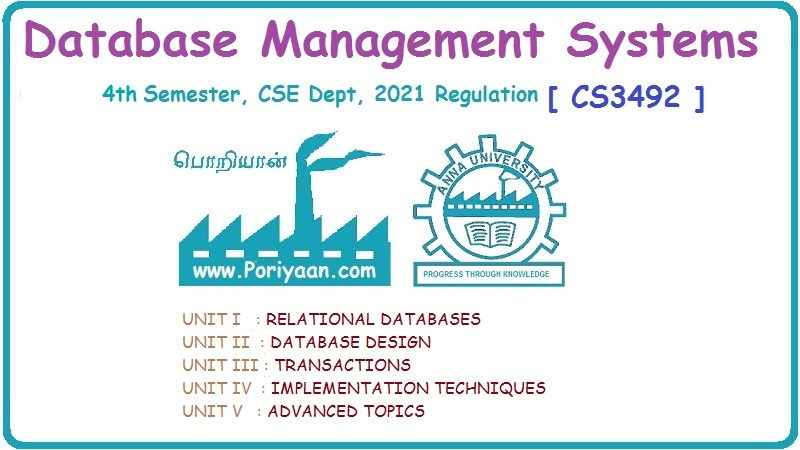Database Management System: Unit V: Advanced Topics
Role Based Access Control
Advanced Topics - Database Management System
It is based on the concept that privileges and other permissions are associated with A organizational roles, rather than individual users. Individual users are then assigned to appropriate roles.
Role Based Access Control
• It is based on the concept that
privileges and other permissions are associated with A organizational roles,
rather than individual users. Individual users are then assigned to appropriate
roles.
• For example, an accountant in a
company will be assigned to the Accountant role, gaining access to all the
resources permitted for all accountants on the system. Similarly, a software
engineer might be assigned to the Developer role.
• In an RBAC system, the roles are centrally managed
by the administrator. The administrators determine what roles exist within
their companies and then map these roles to job functions and tasks.
• Roles can effectively be implemented using security
groups. The security groups are created representing each role. Then
permissions and rights are assigned to these groups. Next, simply add the
appropriate users to the appropriate security groups, depending on their roles
or job functions.
• A user can have more than one role.
And more than one user can have the same role.
• Role hierarchies can be used to
match natural relations between roles. For example - A lecturer can create a
role student and give it a privilege "read course material".
• Role Based Access Control (RBAC),
also known as non discretionary access control.
• RBAC security strategy is widely
used by most organizations for deployment of commercial and off-the-shelf
products.
Advantages:
(1) The security is more easily maintained by limiting unnecessary
access to sensitive information based on each user's established role within
the organization.
(2) All the roles can be aligned with the organizational structure of
the business and users can do their jobs more efficiently and autonomously.
Disadvantages:
(1) It is necessary to understand each user's functionality in depth so
that roles can be properly assigned.
(2) If roles are not assigned properly then inappropriate access right
creates security severe problems for database system.
Database Management System: Unit V: Advanced Topics : Tag: : Advanced Topics - Database Management System - Role Based Access Control
Related Topics
Related Subjects
Database Management System
CS3492 4th Semester CSE Dept | 2021 Regulation | 4th Semester CSE Dept 2021 Regulation
